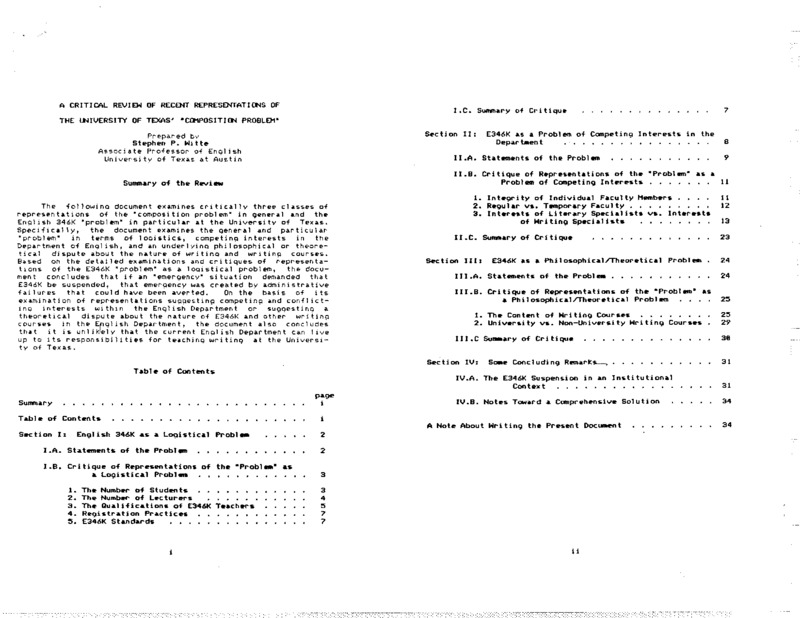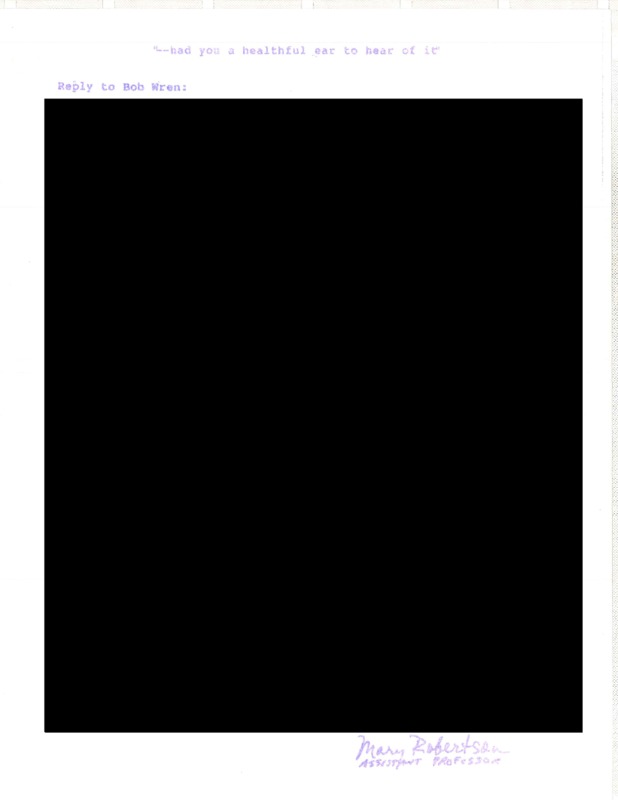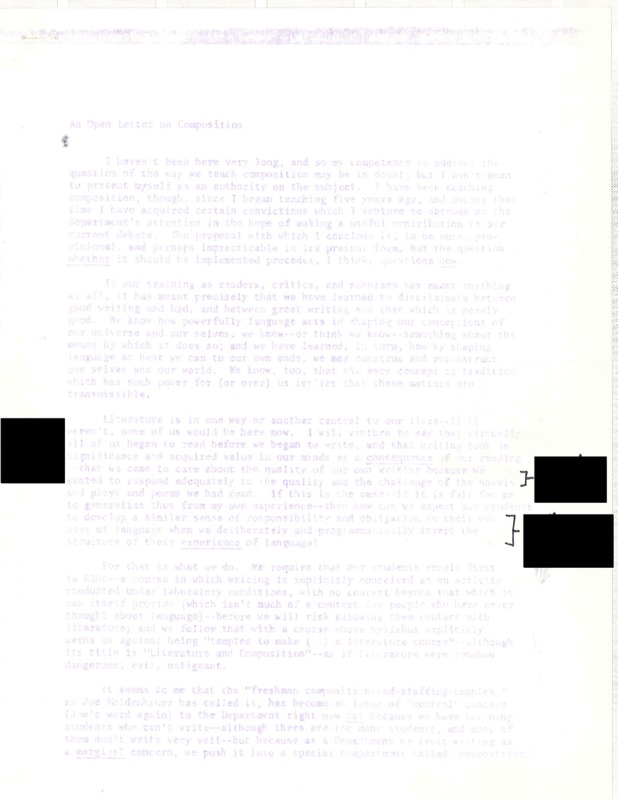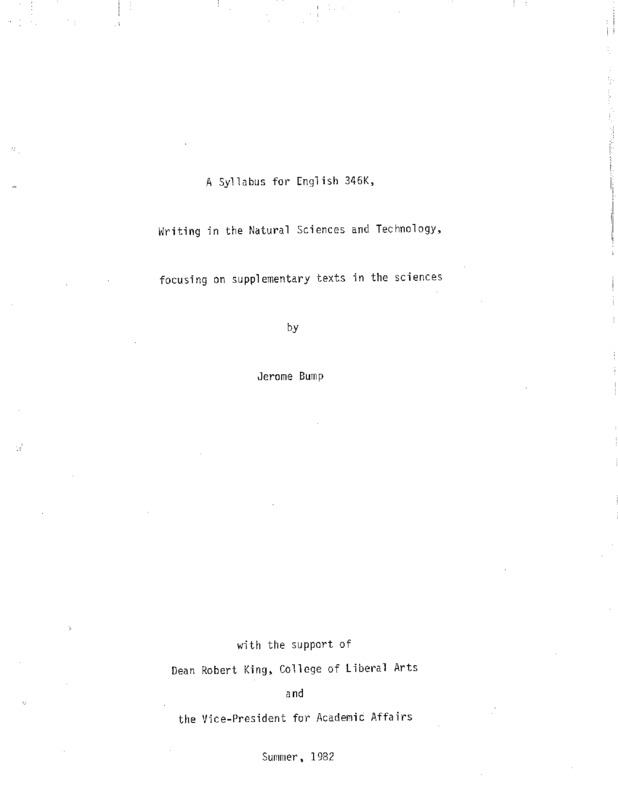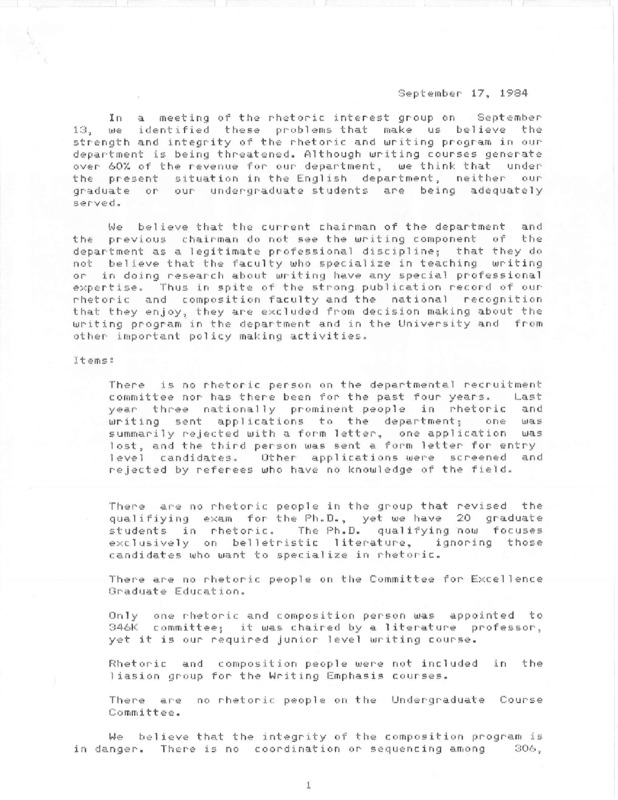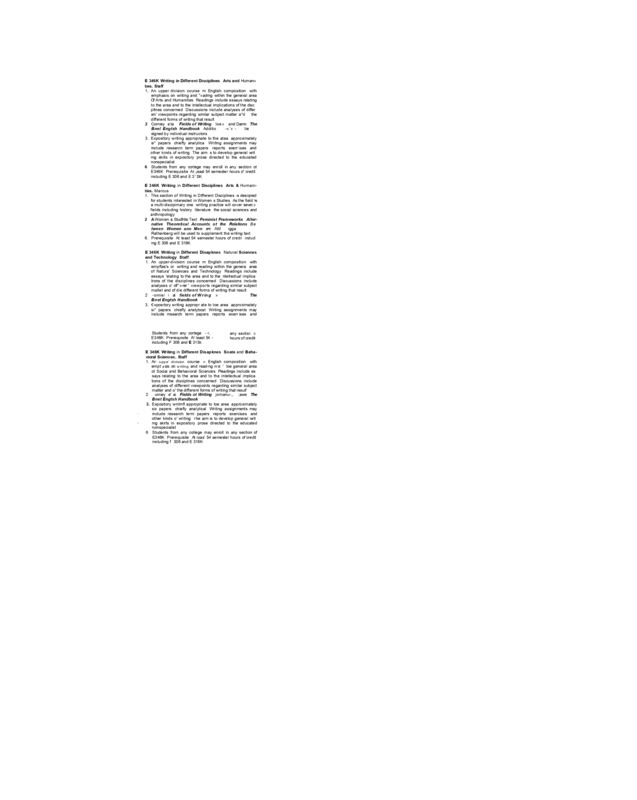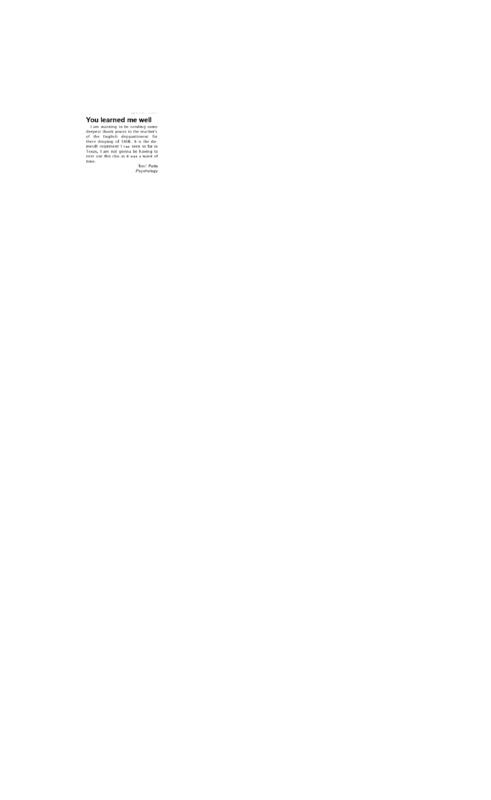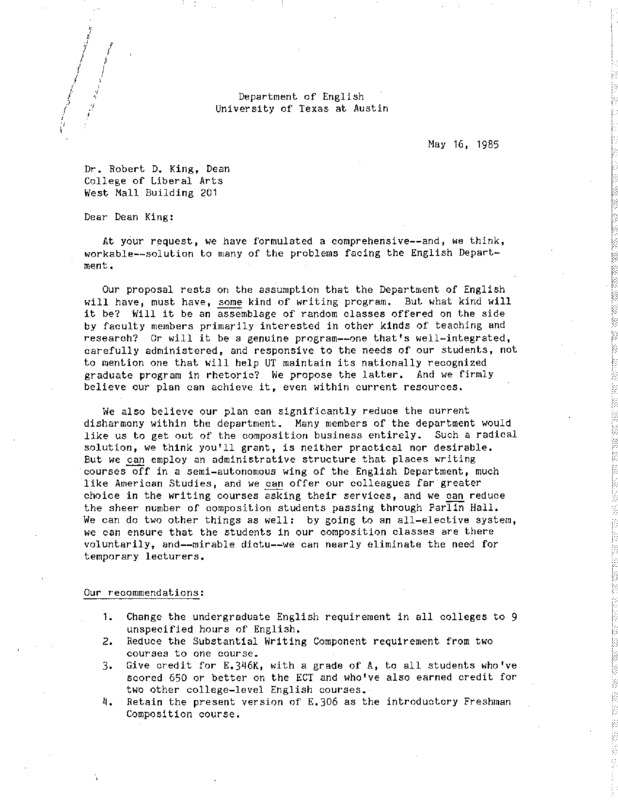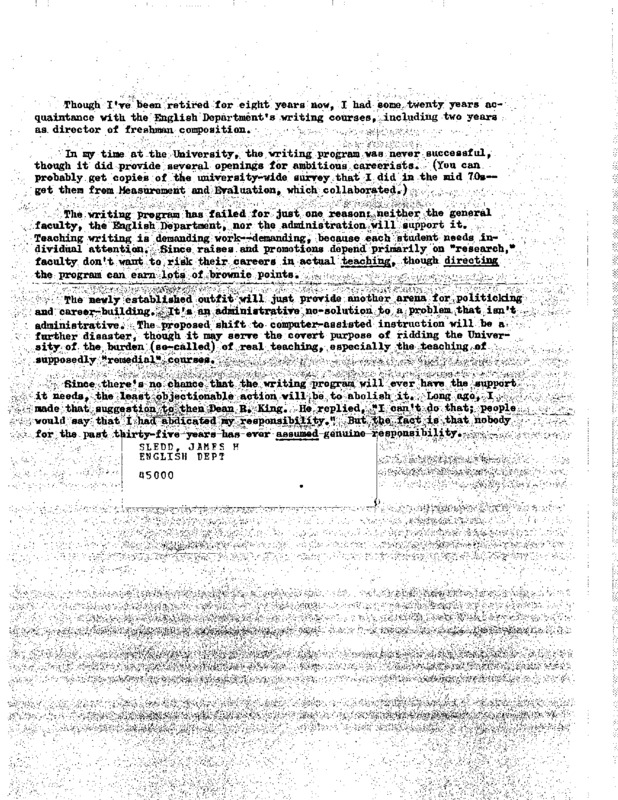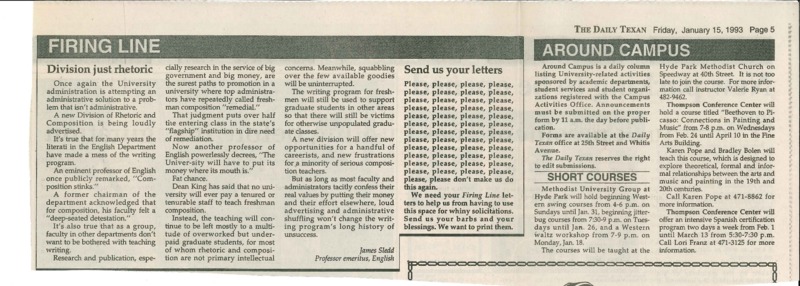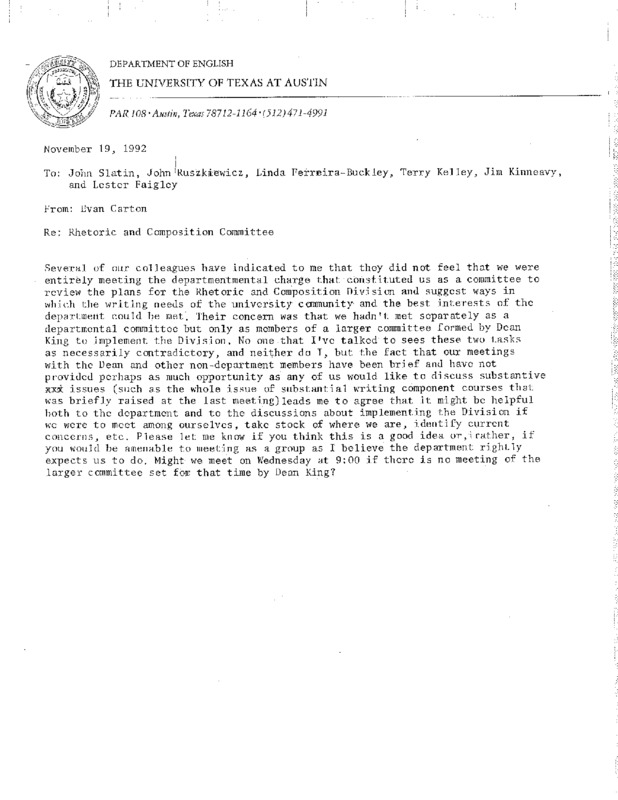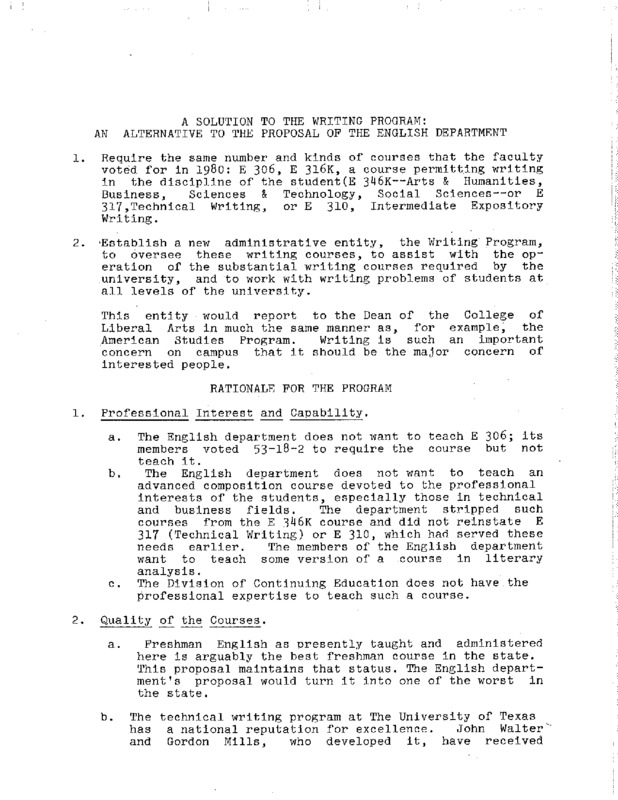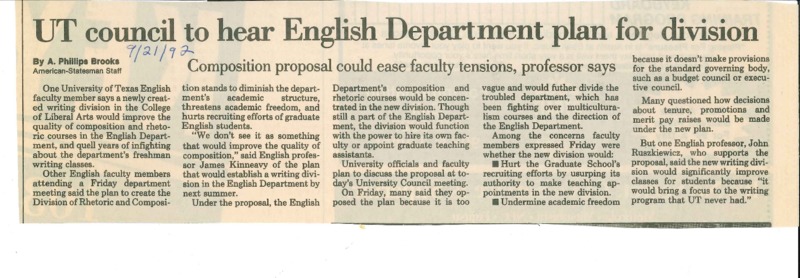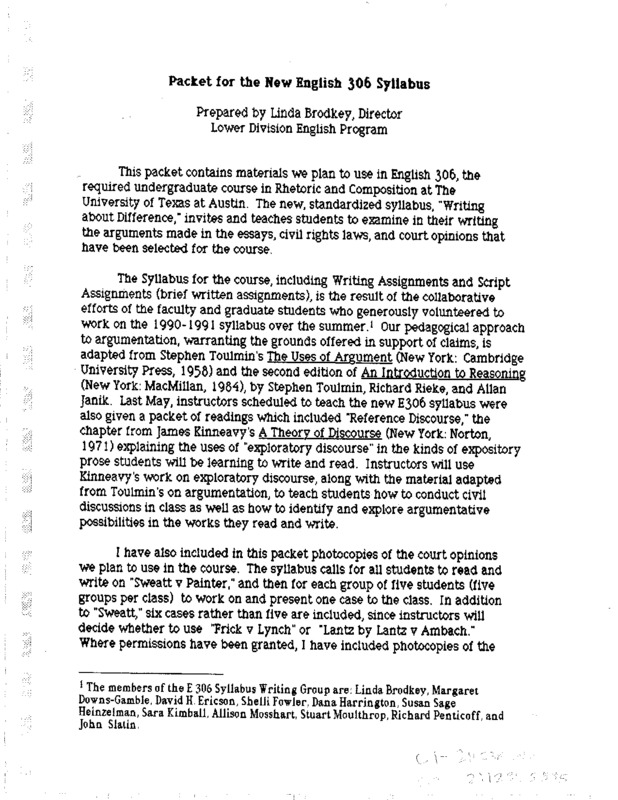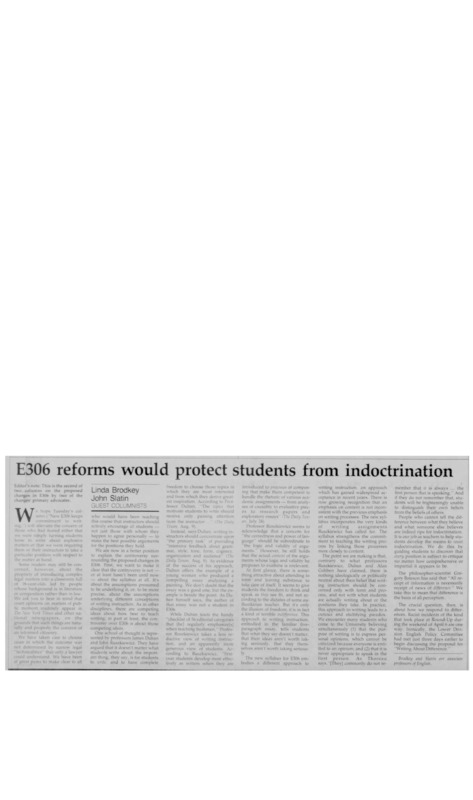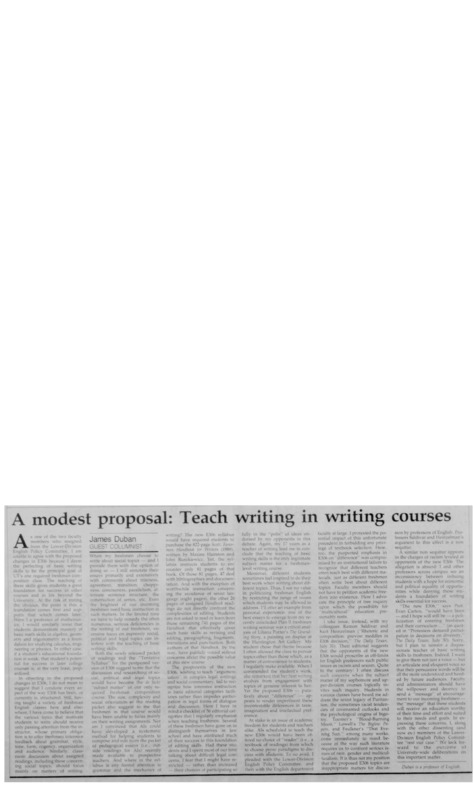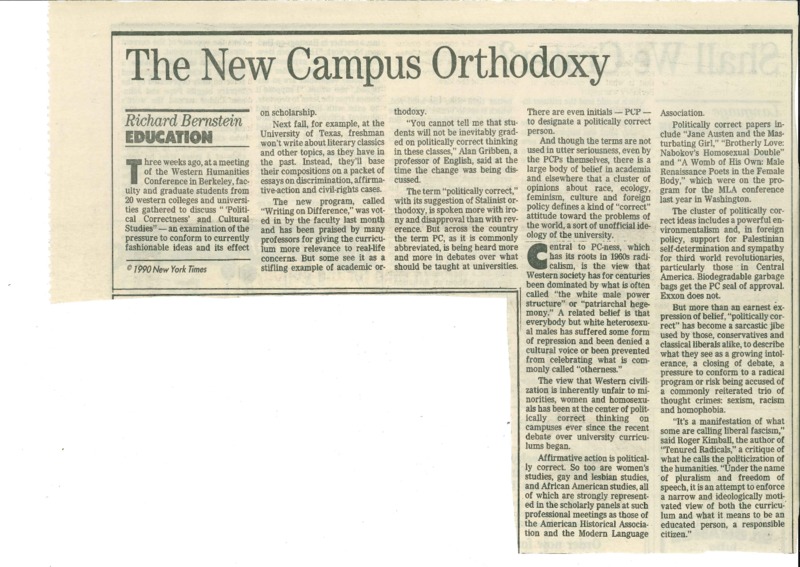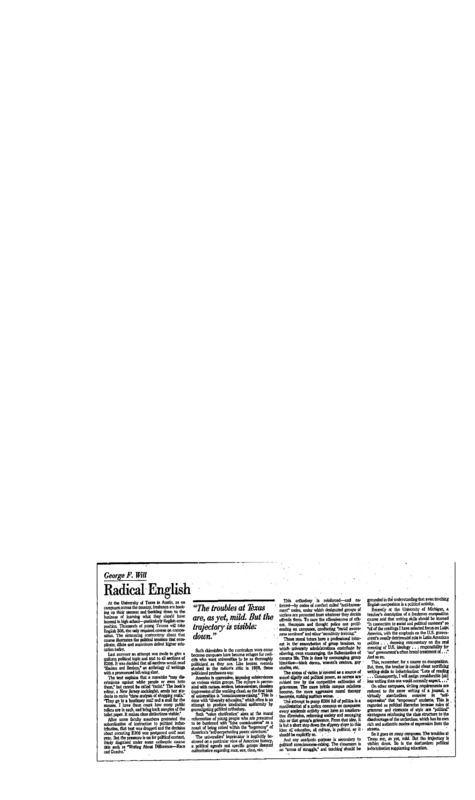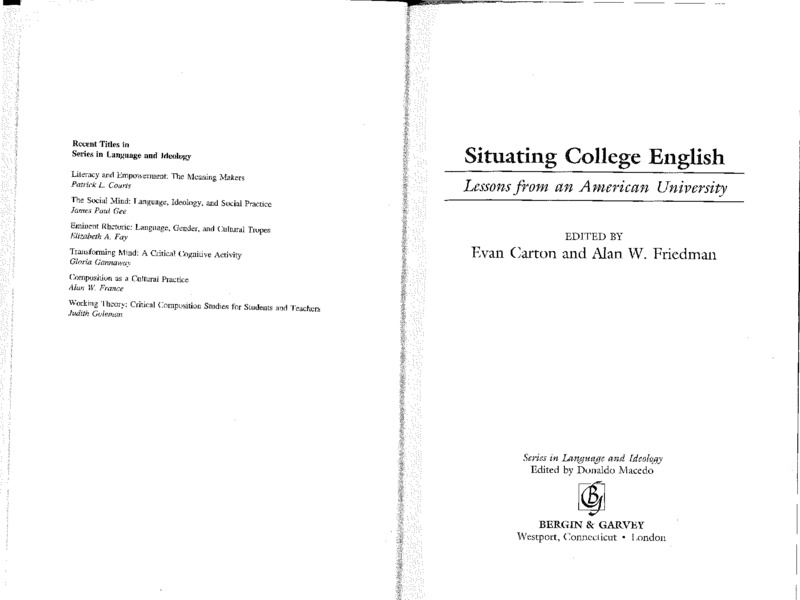Composition Theory in Practice

The documents throughout this archive demonstrate the fraught dynamics of rethinking and restructuring the way universities teach writing. Among other tales, this archive tells the story of a department struggling to answer a barrage of questions: What is the goal of university composition courses? What content should they include? Who should teach them? Who wants to? Is first-year composition even the best way to reach those goals? How might these courses exist within or beyond English departments? How should composition courses relate to the writing practices that students are expected to engage throughout the university and after?
By 1993, the UT writing program gained autonomy from the English Department and became the Division of Rhetoric and Composition. Along the way, the events at UT resonated with -- and in some instances directly sparked -- contemporaneous conversations in academic journals about how writing should be taught. As the citations and archival documents below illustrate, the events at UT specifically amplified scholarly discourse regarding the role of literature in the composition classroom and the relationship between Writing Studies and English Studies, both in terms of pedagogy and in terms of labor. The archives, too, show how contemporary conversations about critical pedagogy and the role of composition courses in the university played out on UT’s campus, affecting classroom curriculum, instructor training, and departmental relationships.
Literature in the Composition Classroom
Bishop, Wendy. “The Literary Text and the Writing Classroom.” JAC, vol. 15, no. 3, 1995, pp. 435-454.
Lindemann, Erika. “Freshman Composition: No Place for Literature.” College English, vol. 55, no. 3, 1993, pp. 311-316.
Manning, Sylvia. “Reflections on Having Separated Freshman Writing from the English Department.” ADE Bulletin, vol. 73, 1982, pp. 22-25.
Tate, Gary. “A Place for Literature in Freshman Composition.” College English, vol. 55, no. 3, 1993, pp. 317-321.
Writing Across the Curriculum | Writing in the Disciplines:
Griffin, C.W. “Writing-Across-the-Curriculum Programs Theory and Practice: A Selected Bibliography.” Journal of Advanced Composition, vol. 4, 1983, pp. 161-171.
Kinneavy, James L. “Writing Across the Curriculum.” ADE Bulletin, vol. 76, 1983, pp. 14-21.
Paenros, Ann M. and Cheryl Geisler. “Reading and Writing Without Authority.” College Composition and Communication, vol. 45, no. 4, 1994, pp. 505-520.
Russell, David R. “Writing Across the Curriculum in Perspective: An Historical Interpretation.” College English, vol. 52, no. 1, 1990, pp. 52-73.
Abolishing First Year Composition
Brooks, Kevin. "Composition's Abolition Debate: Tools for Change." Composition Studies, vol. 30, no. 2, 2002, pp. 27-41.
Connors, Robert. "The New Abolitionism: Towards a Historical Background," Reconcieving Writing, Rethinking Writing Education, edited by Irene L. Clark, Lawrence Erlbaum, 1995.
Crowley, Sharon. "Personal Essay on Freshman English." Composition in the University, edited by Sharon Crowley, U Pitt P, 1998.
Goggin, Maureen Daly, and Susan Kay Miller. “What Is New about the ‘New Abolitionists’: Continuities and Discontinuities in the Great Debate.” Composition Studies, vol. 28, no. 2, 2000, pp. 85–112.
Shamoon, Linda. "Survival Tactics: Rethinking and Redesigning a Writing Program during the New Abolitionism." Composition Chronicle (May 1995): 4-7.
Sledd, James. “Return to Service.” Composition Studies, vol. 28, no. 2, 2000, pp. 11–32.
Critical Literacy & Pedagogy
Berlin, James. “Rhetoric and Ideology in the Writing Class.” College English, vol. 50, no. 4, 1988, pp. 477-494.
Patricia Bizzell. "Academic Discourse and Critical Consciousness: An Application of Paulo Freire." in Academic Discourse and Critical Consciousness (U of Pitt P, 1992).
Hairston, Maxine. "Diversity, Ideology, and Teaching Writing." College Composition and Communication, vol. 43, 1992, pp. 179-193.
Miller, Richard. "The Arts of Complicity: Pragmatism and the Culture of Schooling." College English, vol. 61, 1993, pp. 10-28.
Shor, Ira. Empowering Education: Critical Teaching for Social Change. U of Chicago P, 1992.
Thelin, William. "Understanding Problems in Critical Classrooms." CCC 57.1 (2005): 114-41.
